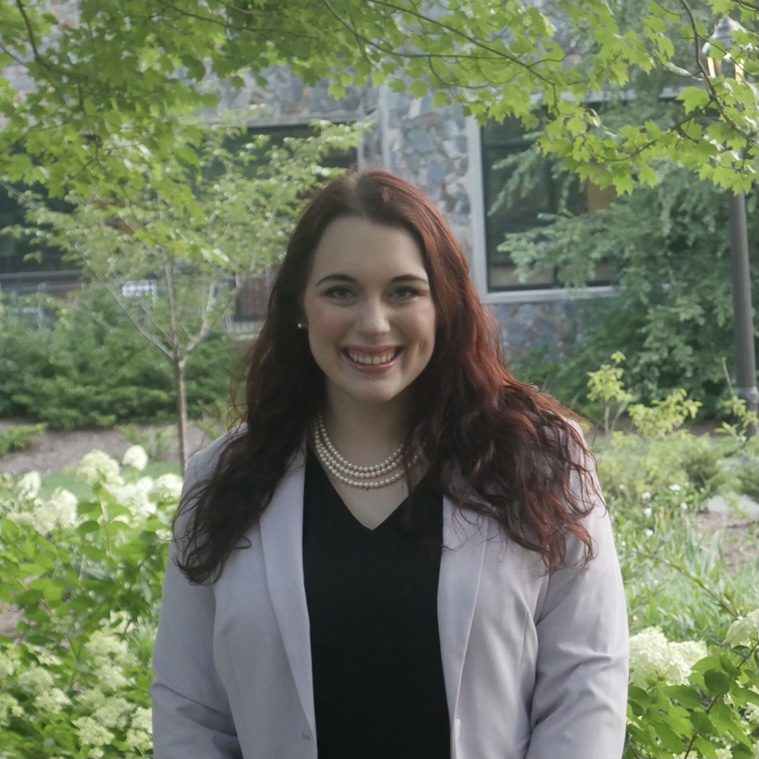Overview
In conjunction with Federal Trade Commission (FTC) Commissioner Christine S. Wilson, the Sanford School of Public Policy hosted an event on Tuesday, September 21, 2021, to explore federal privacy legislation titled Exploring Options: Overcoming Barriers to Comprehensive Federal Privacy Legislation. The event brought leading academic experts together for a detailed discussion of how to make progress towards a law that will provide a regulatory structure optimizing for both the innovative and ethical use of data.
A team of students under the direction of Prof. David Hoffman explored how other laws have implemented federal preemption and remedies. We have created this website for use as a resource by policy stakeholders who are developing proposals for inclusion in a comprehensive federal privacy law. We will continue to update the website, so please send any comments, proposed edits or items to be added to david.hoffman@duke.edu.
One Page Summaries (Click the links below)
Detailed Research
Click each button to view the detailed research on two potential elements of federal privacy legislation
Event Documents: FTC Event Agenda and Commissioner Wilson's Remarks
Event Recording: Link
Speakers
Christine S. Wilson was sworn in on September 26, 2018 as a Commissioner of the Federal Trade Commission. President Donald J. Trump named Wilson to a term that expires on Sept. 25, 2025.
Wilson previously served at the FTC as Chairman Tim Muris’ Chief of Staff during the George W. Bush Administration, and as a law clerk in the Bureau of Competition while attending Georgetown University Law Center. While serving as Chairman Muris’ Chief of Staff, Commissioner Wilson worked with the Chairman on several significant consumer protection initiatives, including the Telemarketing Sales Rule, the National Do Not Call Registry, and the launch of the Commission’s privacy and data security enforcement program with the announcement of the Microsoft and Eli Lilly enforcement actions.
In between periods of service at the FTC, Wilson has practiced competition and consumer protection law both at law firms and as in-house counsel. When nominated, Wilson was serving as Senior Vice President - Legal, Regulatory & International Affairs for Delta Air Lines. Prior to joining Delta, Wilson was a partner in the antitrust practice groups of Kirkland & Ellis LLP and O’Melveny & Myers LLP.
Since joining the FTC in 2018, Commissioner Wilson has taken a keen interest in the Commission’s privacy and data security enforcement program, and is a strong advocate for federal privacy and data security legislation.
Wilson graduated cum laude from Georgetown University Law Center and Phi Beta Kappa from the University of Florida.
Dan Caprio, Co-Founder and Chairman of the Providence Group, is an internationally recognized expert on privacy and cybersecurity. He has served as the Chief Privacy Officer and Deputy Assistant Secretary at the Commerce Department, a transatlantic subject matter expert for the European Commission’s Internet of Things formal expert group, a Chief of
Staff for a Federal Trade Commission Commissioner and a member of the Department of Homeland Security Data Privacy and Integrity Advisory Committee. In 2002, Dan was a representative for the United States delegation revising the OECD Security Guidelines that formed the basis for the first White House Strategy to Secure Cyberspace.
Jolynn Dellinger is the Stephen and Janet Bear Visiting Lecturer and a Kenan Senior Fellow at the Kenan Institute for Ethics, where she teaches privacy and ethics and does work in the area of ethical tech. In addition to teaching Privacy Law and Policy at Duke Law as a Senior Lecturing Fellow, Dellinger is an Adjunct Professor at UNC School of Law, a member of the Board of Directors for the Triangle Privacy Research Hub, and a member of the Future of Privacy Forum Advisory Board. She also recently served as Special Counsel for Privacy Policy and Litigation for the North Carolina Department of Justice.
From 2007-2013, Dellinger worked as the founding program manager for Data Privacy Day, a globally recognized event designed to raise awareness about privacy and create mechanisms for dialogue, collaboration and privacy solutions among nonprofits, academics, businesses and government entities. She has worked as a privacy lawyer at Intel Corporation, at The Privacy Projects, and at the National Cyber Security Alliance.
Prior to working for Intel, Dellinger worked as a staff attorney for Judge W. Earl Britt in the U.S. District Court for the Eastern District of North Carolina (1998-2007), as a Bristow Fellow in the Solicitor General’s Office in the U.S. Department of Justice (1994-95), and as a clerk for Judge Francis D. Murnaghan, Jr. in the U.S. Court of Appeals for the Fourth Circuit (1993-94). She has also practiced at law firms in Washington, D.C. and North Carolina, and taught Family Law at Duke Law School and Legal Writing at UNC School of Law. Dellinger received her BA in English from Columbia University (’89) where she also focused on Religion and Women’s Studies. She received her JD from Duke Law School (‘93), where she graduated Order of the Coif and was an editor on the Duke Law Journal, and her MA in Humanities/Women’s Studies from Duke University (’93).

Prior to leading FPF’s legislative engagement, she spent several years focusing on the privacy implications of data collection in online and mobile advertising, platform regulation, cross-device tracking, Smart Homes, and the Internet of Things. At FPF, she has authored FCC and FTC public filings, and published extensive work related to the intersection of emerging technologies and federal privacy regulation and enforcement. Stacey graduated from the University of Florida in 2010 with a B.S. in Biology and a specialization in biotechnology, and cum laude from Georgetown University Law Center in 2015, during which she worked in privacy-related civil rights litigation as a law clerk for Victor M. Glasberg & Associates, and as a member of the civil rights division of the Institute for Public Representation.

Chris Jay Hoofnagle is Professor of Law in Residence at the University of California, Berkeley, School of Law, where he teaches cybersecurity, programming for lawyers and torts. An elected member of the American Law Institute, Hoofnagle is of counsel to Gunderson Dettmer LLP, and serves on boards for Constella Intelligence and Palantir Technologies.

Prior to joining Colorado Law, Margot was an Assistant Professor at the Ohio State University Moritz College of Law (2014-2017) and served for three years as the Executive Director of the Information Society Project at Yale Law School, where she remains an affiliated fellow. She is a co-founder of the Media Freedom and Information Access (MFIA) Clinic at Yale Law School. She served as a law clerk to the Honorable Andrew J. Kleinfeld of the Ninth Circuit Court of Appeals in Fairbanks, Alaska. Margot is a graduate of Harvard University and Yale Law School.

Cameron F. Kerry is the Ann R. and Andrew H. Tisch Distinguished Visiting Fellow at the Brookings Institution and a global thought leader on privacy and cross-border information flows. At Brookings, he leads “The Privacy Debate” project,which aims to inform the growing national debate about individual privacy. In addition to his Brookings affiliation, Kerry is a visiting scholar at the MIT Media Lab.
Previously, Kerry served as general counsel and acting secretary of the U.S. Department of Commerce, where he was a leader on a wide of range of issues including technology, trade, and economic growth and security. During his time as acting secretary, Kerry served as chief executive of this Cabinet agency and its 43,000 employees around the world, as well as an adviser to former President Barack Obama.
As co-chair of the National Science and Technology Council Subcommittee on Privacy and Internet Policy, Kerry spearheaded development of the White House blueprint on consumer privacy, Consumer Data Privacy in a Networked World: A Framework for Protecting Privacy and Promoting Innovation in the Global Digital Economy. He then led the administration's implementation of the blueprint, drafting privacy legislation and engaging in privacy issues with international partners, including the European Union. He also helped establish and lead the Commerce Department's Internet Policy Task Force, and was the department’s representative on cybersecurity issues and similar issues in the White House “Deputies Committee.”
Francella Ochillo is Executive Director of Next Century Cities, a nonprofit that focuses on expanding high-speed broadband connectivity across the U.S. She is an attorney and digital rights advocate whose work underscores how widespread broadband adoption can improve educational outcomes, economic mobility, the ability to age in place, and pathways for participating in our democracy. Advocating for public interest on a variety of technology and telecommunications issues, Francella provides expertise on how government policies and industry practices affect underrepresented populations.
Also a Technology and Public Purpose Fellow at Harvard University, Francella conducts research on how inadequate access to technology reinforces cycles of poverty. Her analysis documents the cost of inaction on closing the digital divide, emphasizes how digital equity can empower disenfranchised communities, and highlights the ways in which second-class digital citizenship impacts privacy rights.
Francella is a member of the District of Columbia Bar and Federal Communications Bar Association. She has served on Federal Communications Commission working groups, provided Congressional testimony, and participated in various regulatory proceedings. She earned her Juris Doctor from UIC John Marshall Law School in Chicago, Illinois, and a Bachelor of Science degree from Morgan State University in Baltimore, Maryland.

Jessica has been at the forefront of numerous consumer protection and privacy matters for decades. During her 26-year career at the FTC, she built the agency’s privacy program from a small team to the signature program it remains today; brought hundreds of cases to halt illegal conduct and return $ billions to injured consumers; led development of the FTC’s rules protecting children’s privacy and data security; spearheaded influential workshops and reports on the Internet of Things, Big Data, data brokers, mobile apps; and enhanced the agency’s technological resources and capabilities. She also launched a ground-breaking campaign (“Every Community”) to reach out to Black, Latino, and other underserved communities, educate them about their rights, and promote closer engagement with the FTC.
Following her FTC career, Jessica served as vice president for Advocacy at Consumer Reports; as an Independent Consultant to Privacy for America, a business coalition focused on developing a framework for federal privacy legislation; and as a Distinguished Fellow at Georgetown University’s Institute for Technology Law and Policy. Jessica is a graduate of Harvard University and New York University School of Law.
Lead Student Researchers

Mark Scalzo is a second-year student at Duke Law School. Before law school, he worked for five years in a variety of areas at Epic Systems, such as electronic health record (EHR) interoperability, regulatory compliance, and provider well-being. He holds a Bachelor of Engineering in Biomedical Engineering and a Master of Arts in Technology, Policy, and Ethics from Stevens Institute of Technology. Next summer, he will be working at Jones Day in their health care & life sciences group.
Lizzie Americo
Devan Desai is a third-year undergraduate student at Duke University studying Public Policy, Biology, and Chemistry. At Duke, Devan is a Margolis Scholar who is exploring the intersection of healthcare and policy through research and coursework. He is also the President Pro Tempore of the Duke Student Government and Chair of the Honor Council among other campus involvements.
Student Researchers
Harrison Grant, American University School of Law 2024
Joanne Kim, Duke University 2022
Micalyn Struble, Duke University 2022
Niharika Vattikonda, University of North Carolina 2022
Tianjiu Zuo, Duke University 2023
Luke Schwartz, Duke University 2023
Ty Ehuan, University of North Carolina 2023
Spencer Reeves, Duke Kunshan University 2022
Celene Ancalle Gonzales, Duke Law School LLM 2021
